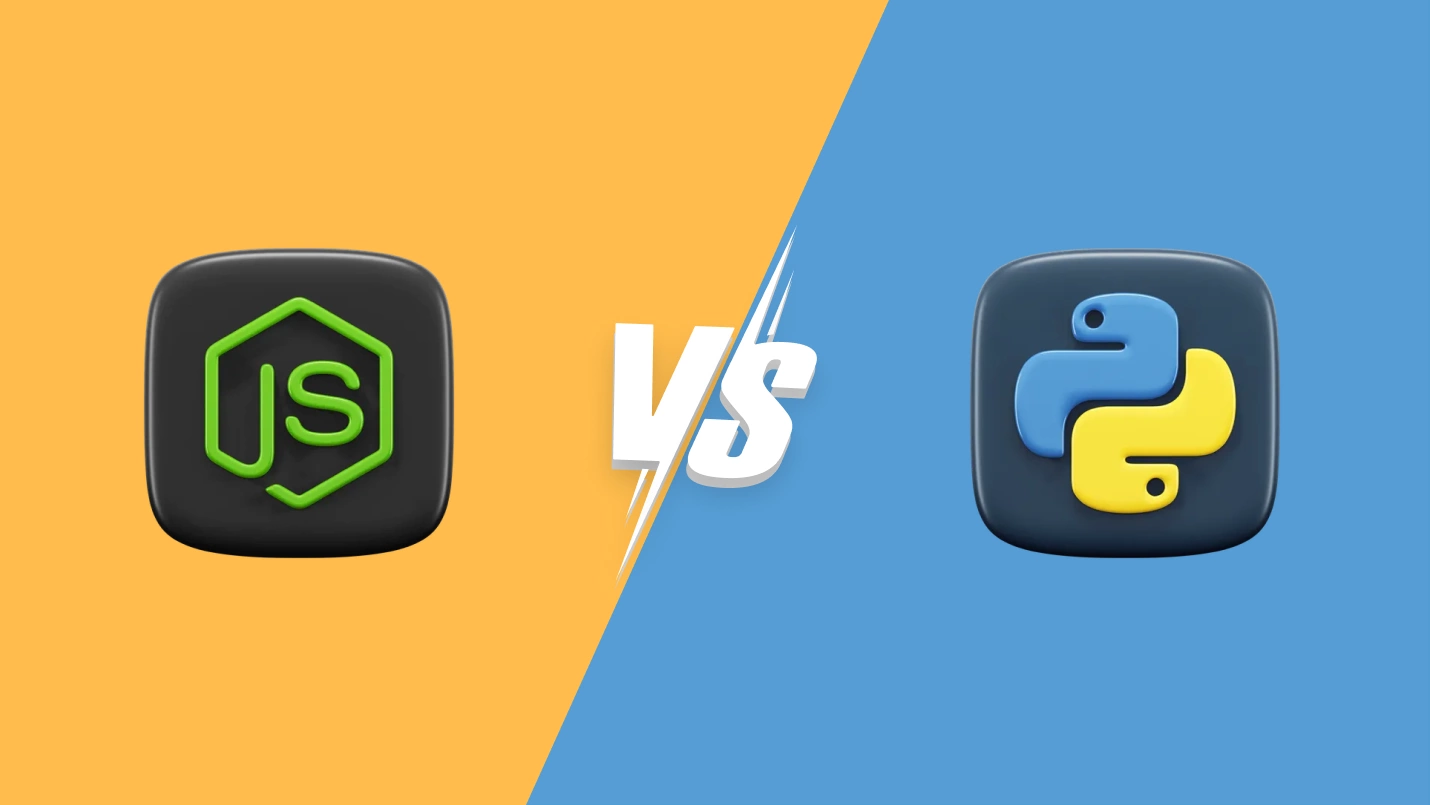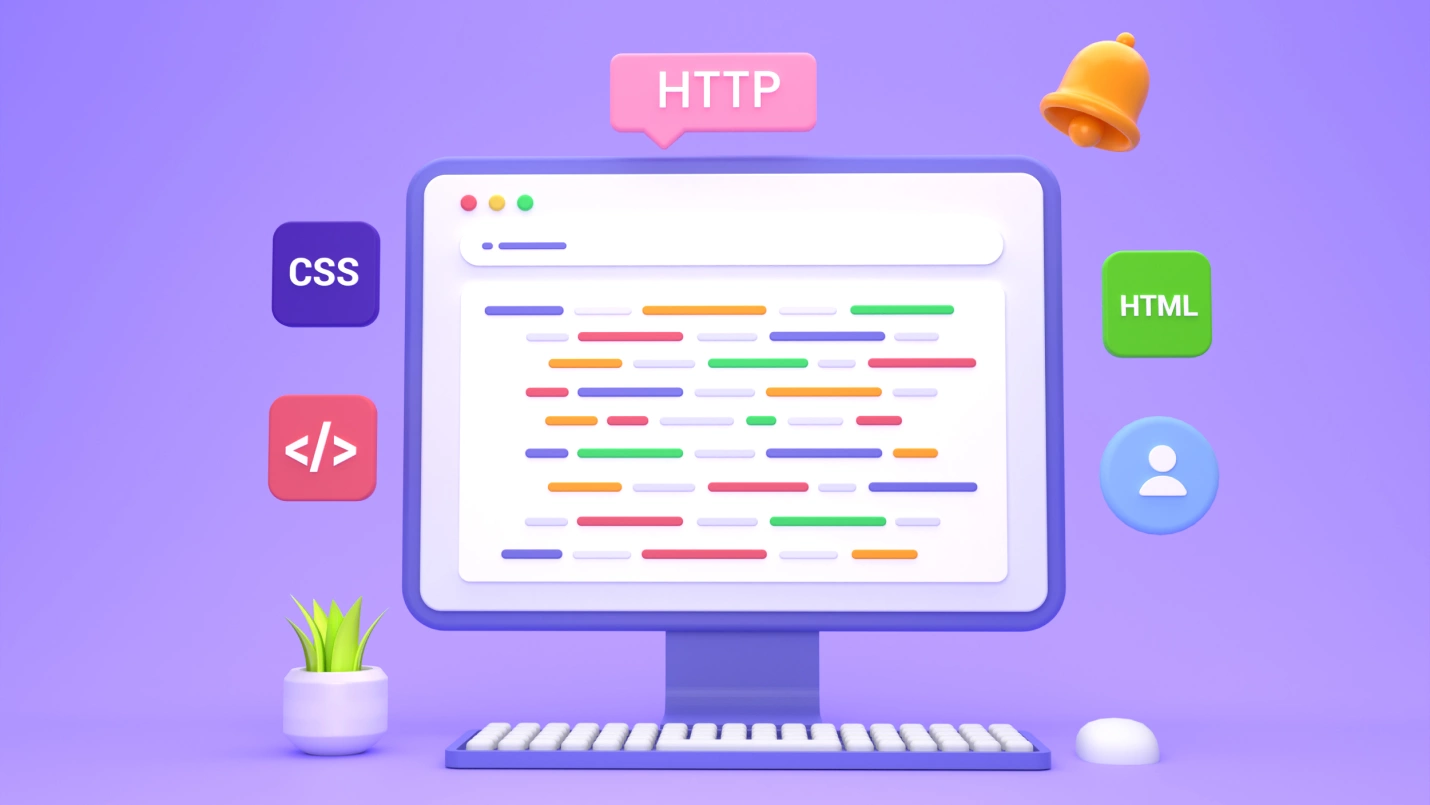Many startups focus on developing websites, mobile apps, data analysis, and other leading-edge technology products. A number of them concentrate on the rapidly growing mobile market. When it comes to website construction, web apps, mobile apps, and other consumer products, the software has a back-end (anything that lives on the server, the workings of the app) and a front-end (the visual representation or UI).
Node.JS and Python are the two major back-end technologies used for development. Startups are often faced with the dilemma of which one to focus on.
Over 1.9% of websites use Node JS compared to 1.3% of websites that use Python – but is that an accurate comparison when each language is used for more than just websites? Nodejs is used by Netflix, NASA, PayPal, Uber, and Twitter, while Python is also favored by brands like Netflix, YouTube, DropBox, and Facebook. Large brands use both, but there is overlap too. To truly understand the comparison of Node JS vs. Python, let’s take a step back and compare the pros and cons, the ideal use cases, and the factors influencing the decision.
Node JS
It is often asked, “Is Nodejs a programming Language?” The answer is “No.” Node JS (Node.js) is an open-source, cross-platform back-end runtime environment that leverages the JavaScript language, initially developed in 2009. Built on Chrome’s V8 JavaScript engine, Nodejs executes JavaScript code outside a web browser, helping designers to build scalable network applications.
Node.js leverages the “JavaScript everywhere” paradigm, allowing web application development with a single language, rather than differentiating languages for server-side and client-side. This is a huge draw for many start ups, particularly those creating cross-platform apps, single page applications (SPAs), ChatBots and data streaming apps.
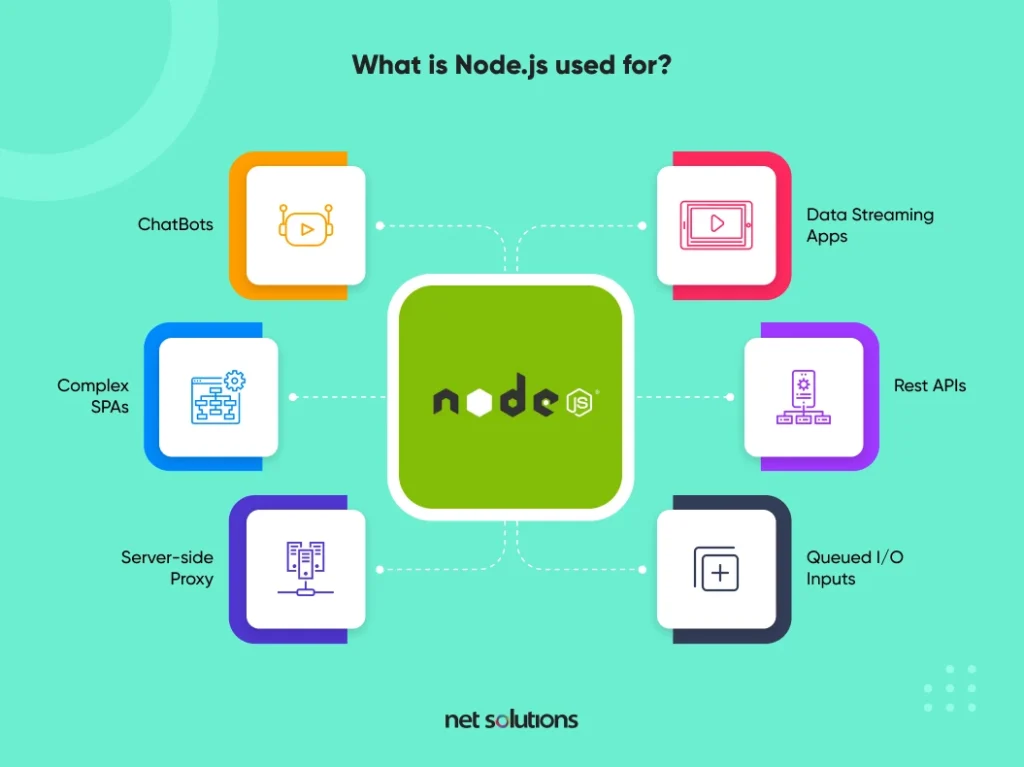
Key Features of Node JS
Is Node JS a frontend or backend? It is, in fact, both! Node.js features an asynchronous event-driven environment that supports full-stack (front and back-end) development by executing JavaScript on the server without a browser. Key features of Nodejs are:
- Best for developing real-time apps like gaming and chatting apps
- Suitable for event-based and non-blocking driven servers, with the majority of the code runs using callbacks
- Uses JavaScript, which is easy to learn and remains one of the most popular languages
- The Node wrappers and the V8 engine leverage C, making it fast
- With strong code, it can enhance the framework’s speed
- It is neutral, that’s why it is gradually becoming the heave of programming languages
- In addition to being secure, it is ready for enterprise deployment purposes
- One environment (full-stack) JSON communication
- Open-source
Benefits of Node JS for startups
Using Nodejs, a tech startup or independent entrepreneur gets the benefits of full-stack JavaScript development, including:
- Fast development
Building things is quicker with better developer productivity with code sharing and reuse (wrapping it into modules) - Performance
Speed of V8 helps aid the overall application performance - Easy
Easy to learn and code, plus easy for monitoring, deployment and future support - Compatibility
Highly compatible with with I/O bound apps and mobile platforms - Full-stack
Ensure same language on client & server side - Demand
High Market Demand, hence more popular in startups - Architecture
Supports Single as well as Multi threaded applications
Limitations of Node JS for Startups
Startups and beginner tech entrepreneurs need to be aware that Node.js does have known downsides, including its most notable set-back around heavy computational tasks. While Nodejs is known to bring performance to the table, that does not apply when the task is very CPU heavy. Other limitations include:
- Computation
Not Suitable for Processor Intensive Tasks - Immaturity
While many Nodejs modules are established and stable, there are many listed tools that are quite immature, with this immaturity not always immediately obvious in the registry. - Unstable API
Node JS frequently updates its API, but without backward incompatibility. - Skill Shortage
The availability of experienced web developers can be a problem
Top Startups Using Node JS
Many startups leverage Node JS today. For example, both Netflix and Trello use Node.js to build single-page applications. At the same time, Nodejs has been the choice for Uber because of faster data efficiency and development – a feature also relied upon by PayPal and eBay. In fact, eBay detailed how Node.js was first brought into the development environment as part of a “Hackathon” idea, making a real-time application that was able to orchestrate a large number of eBay services that display information on the page (handle I/O-bound operations).
“With the success of the Node.js backend stack, eBay’s platform team is now developing a full-fledged frontend stack running on Node.js.” – eBay engineers
Just recently, Uber detailed how they used Nodejs to create its matching system to develop a system that would be reliable for both consumers and drivers – processing large amounts of data quickly and reliably, quick code deployment, convenient error analysis, and continuous improvements. The result? Uber can now process over 2 million remote procedure calls (RPC) per 1 second.
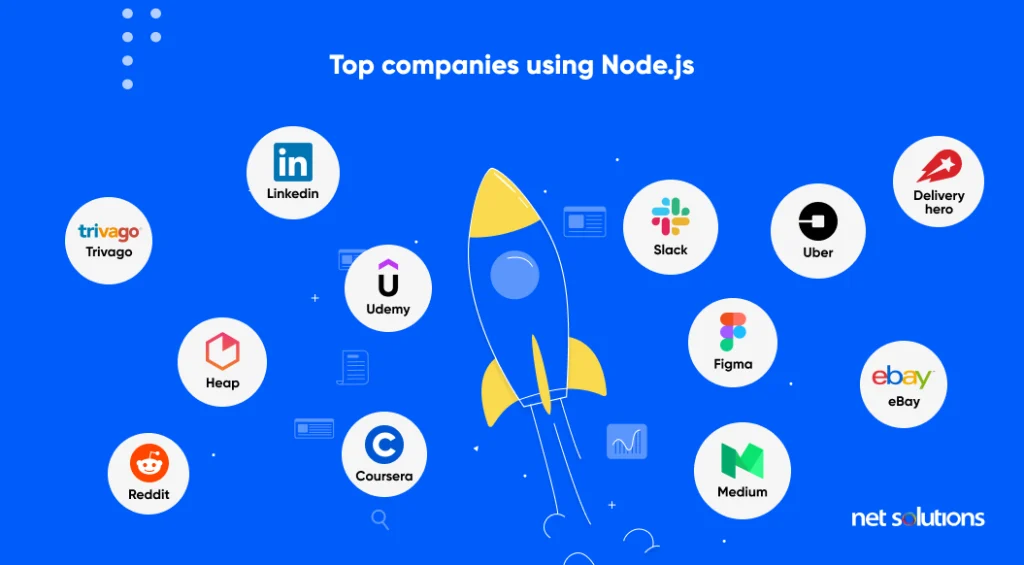
Python
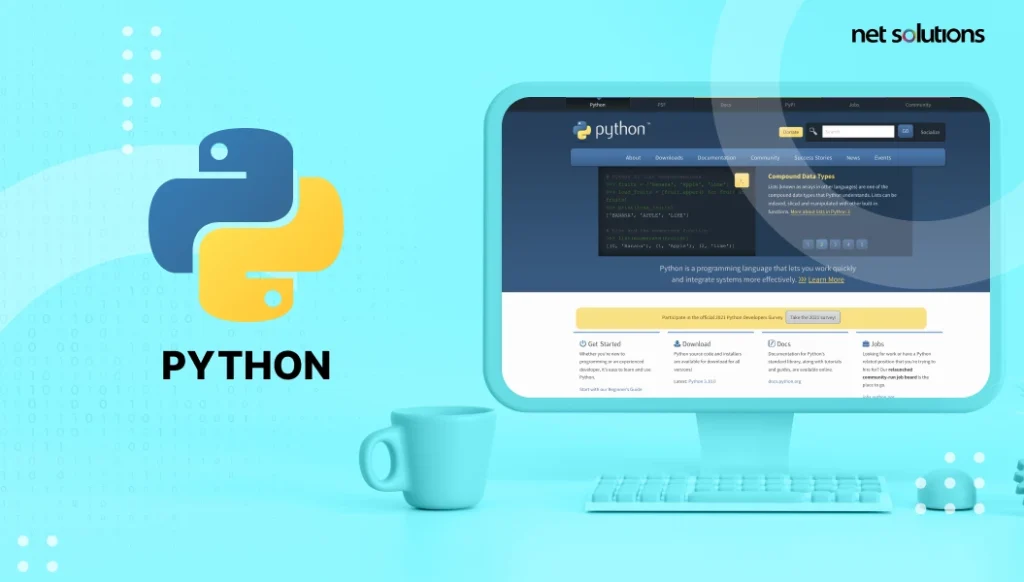
Unlike Node JS, which isn’t a language on its own, Python is a programming language. Python was created in the 1980s and has managed to both retain and grow in the past few years, which in the last year overtook Java as the top programming language in the TIOBE Programming Community Index, reflecting the popularity of the language among developers.
Python is English-syntax-based, making it easy to use, write, and apply to various programming needs. Python is a well-established language with broad community support, robust libraries, and many frameworks.
Key Features of Python
Python is known for its wide-reaching capabilities, well-suited for many kinds of development and for scaling as needed. Python is most often used for websites and web applications, but it is also useful for audio/video applications, desktop applications, and is expanding into more data science areas.
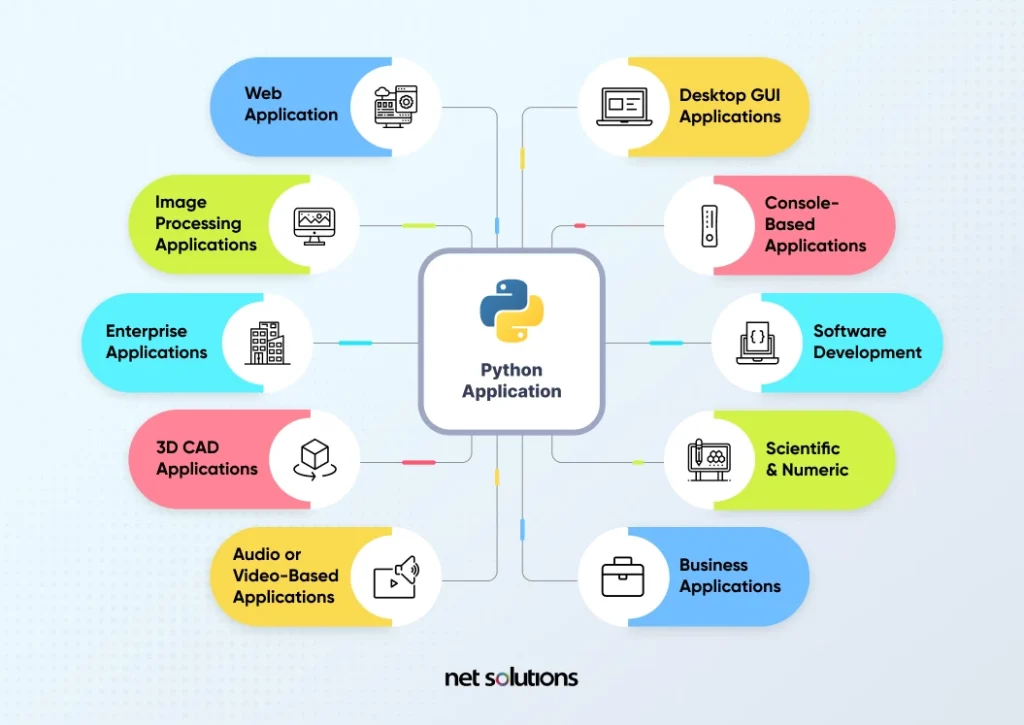
Key features of Python include:
- Leverages dynamic typing, reference counting and a cycle-detecting garbage collector to provide automatic memory management
- Dynamic type system to deal with multiple programming paradigms including structured / procedural, object-oriented, and functional
- Availability of one of the largest & most comprehensive standard libraries
- Compatibility with almost all operating systems
- Open source
- Philosophy is based on simplicity and readability
- High-level built-in data structure
Python is used for both frontend and backend. It is a full-stack language, primarily used for backend development, but Python frameworks are used in frontend development.
Benefits of Python for Startups
Startups and developers choose Python programming language for their projects for many reasons, including the availability of rich libraries and the easy syntax which makes it one of the easiest languages to learn. Overall, benefits include:
- Syntax
Python leverages a clear syntax and indentation structure that helps to clear the code and add white space before a statement whenever required. Python is English-based, making it easy to use and write. - Dynamic typing
Python features dynamic typing and follows the mantra of “beautifying the code.” - Library
Extensive standard library with more than 200 core modules and a huge availability of other Python libraries - Integrations
Python makes it simple to use third-party integrations, allowing developers to create extendible applications - Portability
Python can be run on nearly any computer or operating system, including over mobile & web. - Leading-edge
Python is now considered the first choice of Data Scientists, with many libraries and frameworks that deal specifically with data analytics, data mining, artificial intelligence and machine learning. Python is also commonly the language for IoT (the Internet of Things). - Development
Python encourages modularity and code reuse and supports test-driven development (automation), all of which speed up development - Rapid Prototypes
Python allows for rapid prototyping, so is the best choice for building a minimum viable product (MVP)
Limitations of Python for Startups
While Python is an excellent choice for many startup projects and helps accelerate the market launch, it is not ideal for all projects due to its high memory consumption. Python often comes up short in the face of high-performance expectations for mobile and web apps.
- Speed
As an interpreted language, Python can have low latency and slow performance - High Test Requirement
Python compiles every time the code is executed leading to poor performance and increasing the need for tests - Memory Consumption
Python can place a heavy drain on memory. Developers then need to spend more time looking for memory leaks such as objects that are not correctly released or leaks in the various libraries. Python may not be ideally suited for tasks that involve a lot of memory or for tasks that use many active objects. - Not Natively Mobile
Python is not a native programming language for either iOS or Android. Though it can be used, it often has UI disadvantages, and is thus not often recommended for mobile app development & games - Threading Issues
Python doesn’t support multi-threading
Top Startups Using Python
There are a wide range of startups that look to Python to support strong system and application development. For example, Python continues to be a strong part of the Google tech stack, powering the Google App Engine, YouTube and many system administration tools.
“Python has been an important part of Google since the beginning, and remains so as the system grows and evolves. Today dozens of Google engineers use Python, and we’re looking for more people with skills in this language.”
Of course, there are many other examples of where startups are leveraging Python, including Stripe for its API and Instacart for the data science in their app.
NASA publishes many of its projects in an open source database, A number of these include the use of Python, such as the “Astronomy Picture of the Day” API service.
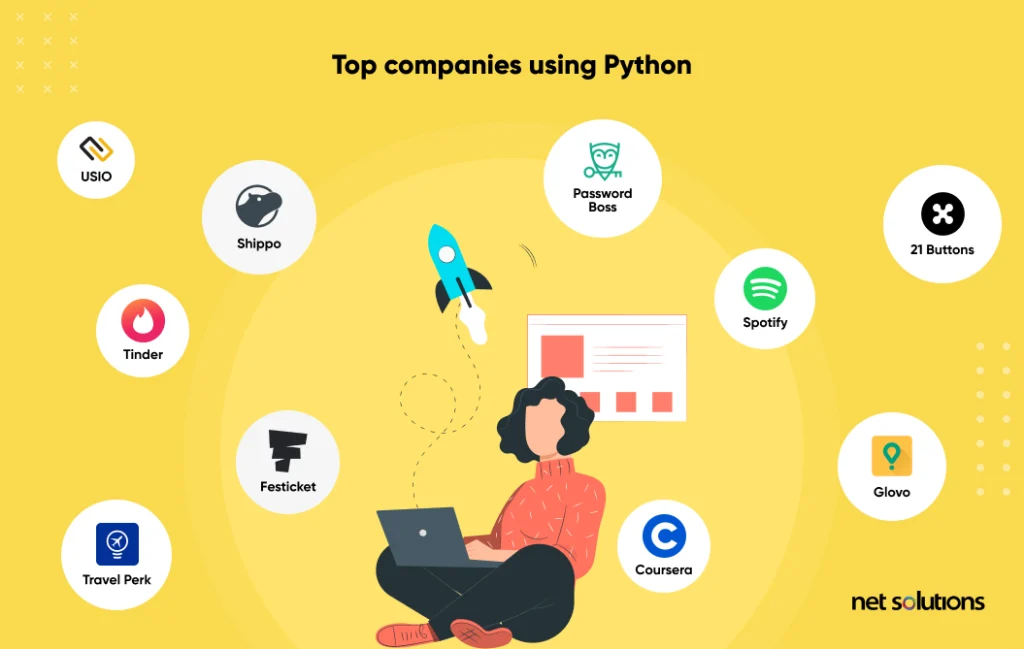
Key Technology Goals for a Startup
When it comes to making the decision of Node JS vs Python, it’s best first to step back and help assess the business goals and product ideas. In general, a startup is looking to take an idea to market as quickly and cost effectively as possible:
- Quick Development
Startups need languages, environments, and frameworks that support simple, rapid development - Cost Effective
Startups need to pay attention to cost, developing an idea without the backing of start-up funding. - Supportive
With limited resources at hand, both in terms of funding and knowledge, startups need to rely on in-house knowledge or key partners who can support developing the idea. Further, the idea needs to be compatible with the existing technology environment of the company (if relevant). - Scalability
Nobody wants to make an idea that doesn’t scale, so always think about the “what if this goes big?” scenario when choosing technologies and languages.
Technology Selection (Node JS Vs Python)
With the history and features of Nodejs and Python so well collated, now it’s time to get into the details of which is better for your startup idea. First, let’s break down the kinds of projects best suited – or not suited – to Node.js:
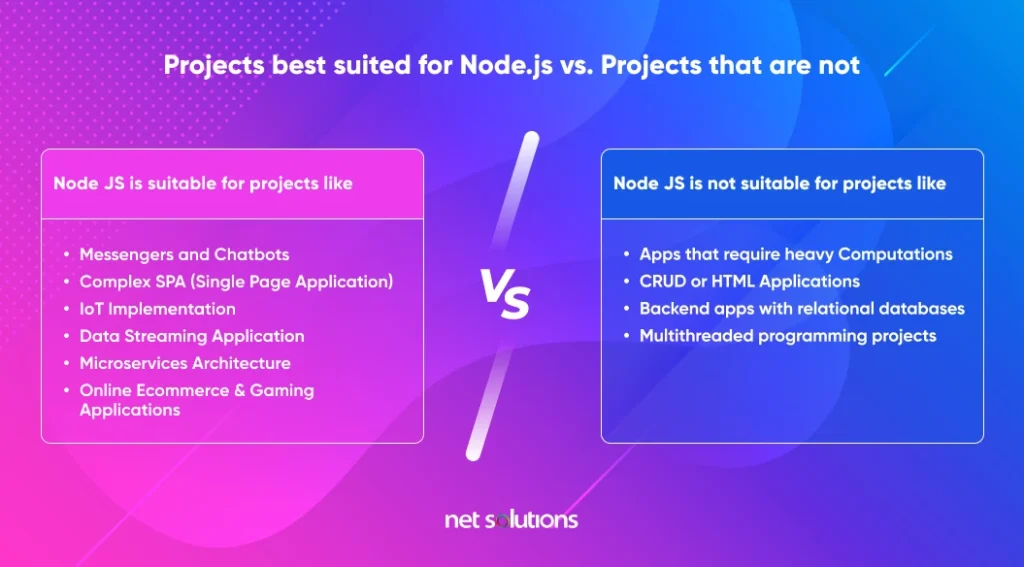
Next, let’s break down the projects best suited or not to Python:

Nodejs vs Python: A Comparison
To help answer questions such as “Is Python faster than Nodejs,” “Node JS vs Python Speed Difference,” or what are the important things of difference between Python & Node,js, here is a comparison table:
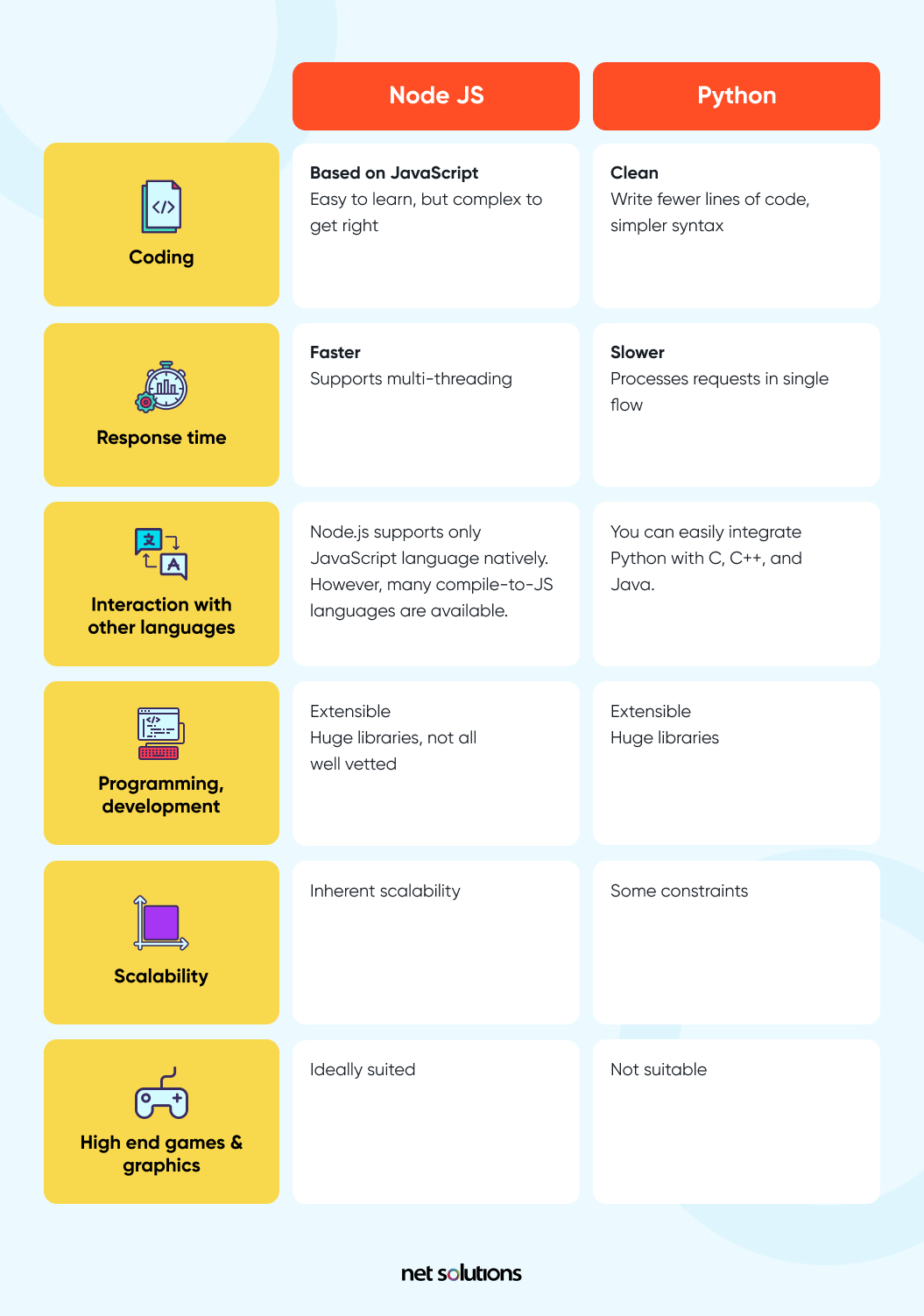
Frequently Asked Questions
Python is considered a more beginner-friendly language, although both benefit from clear English syntax. JavaScript can be more complex to learn with its various class definitions.
These languages will continue to dominate and have longevity in their respective areas. While Python is being increasingly used in data sciences, JavaScript is taking over the area of web development and apps.
Both Node JS and Python are different languages. Node JS works with JavaScript, and Python has CPython. They can only replace each other if you re-write the entire software from the ground up.

